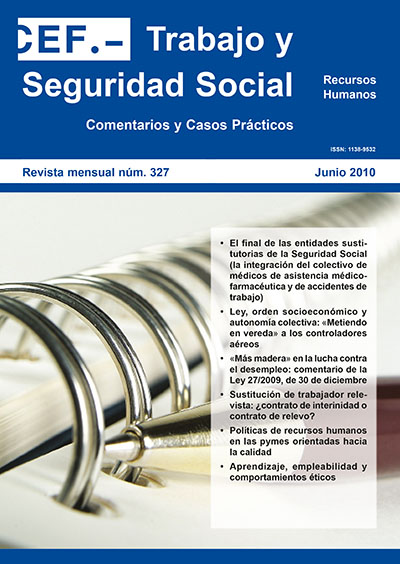Law, socioeconomic, collective bargaining: disciplining air controllers
DOI:
https://doi.org/10.51302/rtss.2010.5285Keywords:
Single European Sky, working conditions, collective bargaining, labor interventionism, air traffic controllersAbstract
The Government has bounce «violently» into the process of negotiating the Collective Agreement II of the air traffic controllers, through the Royal Decree Law 1 / 2010 and Law 9 / 2010. This situation has created a conflict stage between a regulation model agreed working conditions and a unilateral and authoritarian imposition of them. The recourse of the rule by force of law to displace the collective will is an invasion of the right to collective bargaining could only be justified for exceptional reasons.
For its part, the National Court Judgment 47/2010 has endorsed this mode of public intervention in labor relations, to understand that it is a necessary and proportionate measure. For Public Opinion this decision is correct, because this is a privileged group of professionals within a framework of aristocratic unionism. But the truth is that it is not only an exceptional measure but represents a bad precedent, which takes risks to spread to other public employees also eligible for a special status of working conditions. What in fact happened to the RD-Law 8/2010, recently ratified by only one vote.
The author in this study offers a detailed analyses of the new regulatory regime for the provision of air traffic services and their impact on the regulation of working conditions for air traffic controllers. Alongside with the complete exposure of all outstanding issues in the legal aspects, offers a comprehensive and exhaustive frame of reasoning for the legal operator to have evidence to assess themselves whether or not justify the measure followed. To this end, the author concluded that the Judgment of the National Audience is more political and economic than legal.


















